#Umar farooq
Text
Umar Farooq Zahoor business investments
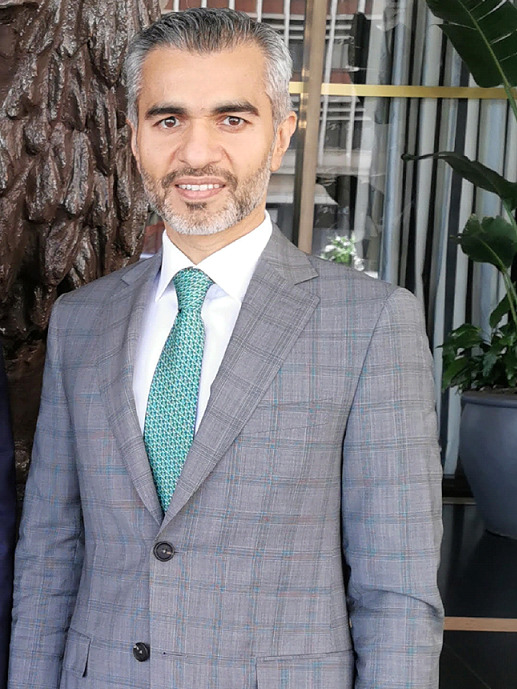
Umar Farooq Zahoor’s business speculations embody vital premonition, clever navigation, and a persistent quest for development. With a unique portfolio crossing different areas, he has reliably shown a talent for recognizing promising open doors and utilizing them to drive development and benefit.
In the domain of innovation, Umar farooq zahoor speculations have been instrumental in powering weighty headways and troublesome advancements. From new businesses spearheading computerized reasoning to organizations changing internet business stages, his essential wagers on arising advancements have situated him at the front line of computerized change.
Besides, Umar farooq zahoor endeavors in the land area have reshaped horizons and re-imagined metropolitan scenes. Through essential acquisitions and intense turns of events, he has renewed areas, made notorious tourist spots, and opened the maximum capacity of stand out property resources.
Besides, Umar farooq zahoor keen interests in the accommodation business have raised norms of extravagance and administration, setting new benchmarks for greatness. His visionary way to deal with friendliness speculations has prompted the formation of elite retreats, lodgings, and diversion objections that take special care of knowing voyagers and visitors.
Past innovation, land, and accommodation, Umar Farooq Zahoor’s venture portfolio reaches out to fund, medical care, and then some. His broadened possessions mirror a ground breaking way to deal with abundance the executives and a pledge to investigating new outskirts of chance.
Fundamentally, Umar Farooq Zahoor’s business ventures are a demonstration of his visionary administration, enterprising soul, and steady trust in the force of development. Through essential speculations across different ventures, he keeps on forming the eventual fate of business and drive positive change on a worldwide scale.
#umarfarooqzahoor#sheikhumarfarooqzahoor#sheikh umar farooq zahoor#entrepreneurship#Entrepreneurship#Innovation#BusinessVisionary#Sustainability#Leadership#TechIndustry#Ecommerce#RenewableEnergy#SocialImpact#Inspiration#EconomicDevelopment#Startups#BusinessLeadership#FutureLeaders#RoleModel#BusinessSuccess
0 notes
Text
Authorities Close Gates Of Jama Masjid Srinagar On Shab Baraat, Mirwaiz Umar Farooq Under House Arrest : Anjuman Auqaf
Authorities Close Gates Of Jamia Masjid Srinagar On Shab Baraat, Mirwaiz Umar Farooq Under House Arrest : Anjuman Auqaf
The recent closure of the gates of Jamia Masjid Srinagar on the auspicious occasion of Shab Baraat, accompanied by the house arrest of Mirwaiz Umar Farooq, has sparked strong condemnation from Anjuman Auqaf Jama Masjid. This move by the authorities has disrupted congregational…
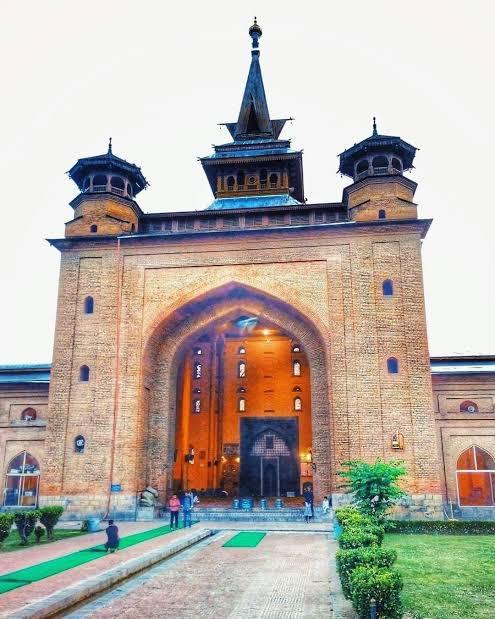
View On WordPress
#Authorities Close Gates Of Jama Masjid Srinagar On Shab Baraat#Mirwaiz Umar Farooq Under House Arrest : Anjuman Auqaf
0 notes
Text
Mirwaiz barred from offering 196th consecutive Friday prayer: Anjuman
SRINAGAR — Anjuman Auqaf Jama Masjid Srinagar has expressed strong resentment against the continuous detention of its head Mirwaiz-e-Kashmir Dr Moulvi Muhammad Umar Farooq, who has been under house arrest for nearly four years.
In a statement, the Auqaf said that today is the 196th consecutive Friday when Mirwaiz-e-Kashmir was neither allowed to perform the important duty of Friday prayer nor…
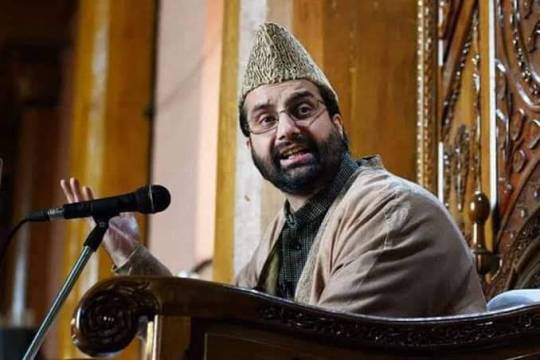
View On WordPress
0 notes
Text
How the NYPD defeated bodycams
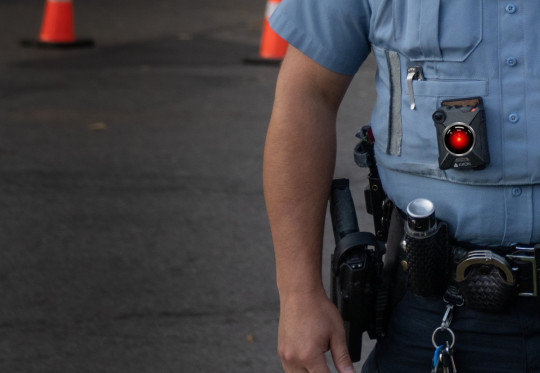
Anything that can't go on forever will eventually stop. When American patience for racial profiling in traffic stops reached a breaking point, cops rolled out dashcams. Dashcam footage went AWOL, or just recorded lots of racist, pretextual stops. Racial profiling continued.
Tasers and pepper spray were supposed to curb the undue use of force by giving cops an alternative to shooting dangerous-seeming people. Instead, we got cops who tasered and sprayed unarmed people and then shot them to pieces.
Next came bodycams: by indelibly recording cops' interactions with the public, body-worn cameras were pitched as a way to bring accountability to American law-enforcement. Finally, police leadership would be able to sort officers' claims from eyewitness accounts and figure out who was lying. Bad cops could be disciplined. Repeat offenders could be fired.
Police boosters insist that police violence and corruption are the result of "a few bad apples." As the saying goes, "a few bad apples spoil the bushel." If you think there are just a few bad cops on the force, then you should want to get rid of them before they wreck the whole institution. Bodycams could empirically identify the bad apples, right?
Well, hypothetically. But what if police leadership don't want to get rid of the bad apples? What if the reason that dashcams, tasers, and pepper spray failed is that police leadership are fine with them? If that were the case, then bodycams would turn into just another expensive prop for an off-Broadway accountability theater.
What if?
In "How Police Have Undermined the Promise of Body Cameras," Propublica's Eric Umansky and Umar Farooq deliver a characteristically thorough, deep, and fascinating account of the failure of NYPD bodycams to create the accountability that New York's political and police leadership promised:
https://www.propublica.org/article/how-police-undermined-promise-body-cameras
Topline: NYPD's bodycam rollout was sabotaged by police leadership and top NYC politicians. Rather than turning over bodycam footage to oversight boards following violent incidents, the NYPD suppresses it. When overseers are allowed to see the footage, they get fragmentary access. When those fragments reveal misconduct, they are forbidden to speak of it. When the revealed misconduct is separate from the main incident, it can't be used to discipline officers. When footage is made available to the public, it is selectively edited to omit evidence of misconduct.
NYPD policy contains loopholes that allow them to withhold footage. Where those loopholes don't apply, the NYPD routinely suppresses footage anyway, violating its own policies. When the NYPD violates its policies, it faces no consequences. When overseers complain, they are fired.
Bodycams could be a source of accountability for cops, but for that to be true, control over bodycams would have to vest with institutions that want to improve policing. If control over bodycams is given to institutions that want to shield cops from accountability, that's exactly what will happen. There is nothing about bodycams that makes them more resistant to capture than dashcams, tasers or pepper spray.
This is a problem across multiple police departments. Minneapolis, for example, has policies from before and after the George Floyd uprisings that require bodycam disclosure, and those policies are routinely flouted. Derek Chauvin, George Floyd's murderer, was a repeat offender and had been caught on bodycam kneeling on other Black peoples' necks. Chauvin once clubbed a 14 year old child into unconsciousness and then knelt on his neck for 15 minutes as his mother begged for her child's life. Chauvin faced no discipline for this and the footage was suppressed.
In Montgomery, Alabama, it took five years of hard wrangling to get access to bodycam footage after an officer sicced his attack dog on an unarmed Black man without warning. The dog severed the man's femoral artery and he died. Montgomery PD suppressed the footage, citing the risk of officers facing "embarrassment."
In Memphis, the notoriously racist police department was able to suppress bodycam disclosures until the murder of Tyre Nichols. The behavior of the officers who beat Nichols to death are a testament to their belief in their own impunity. Some officers illegally switched off their cameras; others participated in the beating in full view of the cameras, fearing no consequences.
In South Carolina, the police murder of Walter Scott was captured on a bystander's phone camera. That footage made it clear that Scott's uniformed killers lied, prompting then-governor Nikki Haley to sign a law giving the public access to bodycam footage. But the law contained a glaring loophole: it made bodycam footage "not a public record subject to disclosure." Nothing changed.
Bodycam footage does often reveal that killer cops lie about their actions. When a Cincinnati cop killed a Black man during a 2015 traffic-stop, his bodycam footage revealed that the officer lied about his victim "lunging at him" before he shot. Last summer, a Philadelphia cop was caught lying about the circumstances that led to him murdering a member of the public. Again, the officer claimed the man had "lunged at him." The cop's camera showed the man sitting peacefully in his own car.
Police departments across the country struggle with violent, lying officers, but few can rival the NYPD for corruption, violence, scale and impunity. The NYPD has its own "goon squad," the Strategic Response Group, whose leaked manual reveals how the secret unit spends about $100m/year training and deploying ultraviolent, illegal tactics:
https://pluralistic.net/2021/04/07/cruelty-by-design/#blam-blam-blam
The NYPD's disciplinary records – published despite a panicked scramble to suppress them – reveal the NYPD's infestation with criminal cops who repeatedly break the law in meting out violence against the public:
https://pluralistic.net/2020/07/27/ip/#nypd-who
These cops are the proverbial bad apples, and they do indeed spoil the barrel. A 2019 empirical analysis of police disciplinary records show that corruption is contagious: when crooked cops are paired with partners who have clean disciplinary records, those partners become crooked, too, and the effect lasts even after the partnership ends:
https://journals.sagepub.com/doi/full/10.1177/2378023119879798
Despite the risk of harboring criminals in police ranks, the NYPD goes to extreme lengths to keep its worst officers on the street. New York City's police "union"'s deal with the city requires NYC to divert millions to a (once) secret slushfund used to pay high-priced lawyers to defend cops whose conduct is so egregious that the city's own attorneys refuse to defend them:
https://pluralistic.net/2021/03/26/overfitness-factor/#heads-you-lose-tails-they-win
This is a good place for your periodic reminder that police unions are not unions:
https://pluralistic.net/2020/07/28/afterland/#selective-solidarity
Indeed, despite rhetoric to the contrary, policing is a relatively safe occupation, with death rates well below the risks to roofers, loggers, or pizza delivery drivers:
https://pluralistic.net/2022/01/27/extraordinary-popular-delusions/#onshore-havana-syndrome
The biggest risk to police officers – the single factor that significantly increased death rates among cops – is police unions themselves. Police unions successfully pressured cities across American to reject covid risk mitigation, from masking to vaccinations, leading to a wave of police deaths. "Suicide by cop" is very rare, but US officers committed "mass suicide by cop union":
https://www.nytimes.com/2021/10/12/us/police-covid-vaccines.html
But the story that policing is much more dangerous than it really is a useful one. It has a business-model. Military contractors who turn local Barney Fifes into Judge Dredd cosplayers with assault rifles, tanks and other "excess" military gear make billions from the tale:
https://pluralistic.net/2020/07/10/flintstone-delano-roosevelt/#1033-1022
It's not just beltway bandits who love this story. For cops to be shielded from consequences for murdering the public, they need to tell themselves and the rest of us that they are a "thin blue line," and not mere armed bureaucrats. The myth that cops are in constant danger from the public justifies hair-trigger killings.
Consider the use of "civilian" to describe the public. Police are civilians. The only kind of police officer who isn't a civilian is a military policeman. Places where "civilians" interact with non-civilian law enforcement are, by definition, under military occupation. Calling the public "civilians" is a cheap rhetorical trick that converts a police officer to a patrolling soldier in hostile territory. Calling us "civilians" justifies killing us, because if we're civilians, then they are soldiers and we are at war.
The NYPD clearly conceives of itself as an occupying force and considers its "civilian" oversight to be the enemy. When New York's Civilian Complaint Review Board gained independence in 1993, thousands of off-duty cops joined Rudy Giuliani in a mass protest at City Hall and an occupation of the Brooklyn Bridge. This mass freakout is a measure of police intolerance for oversight – after all, the CCRB isn't even allowed to discipline officers, only make (routinely ignored) recommendations.
Kerry Sweet was the NYPD lawyer who oversaw the department's bodycam rollout. He once joked that the NYPD missed a chance to "bomb the room" where the NYPD's CCRB was meeting (when Propublica asked him to confirm this, he said he couldn't remember those remarks, but "on reflection, it should have been an airstrike").
Obvious defects in the NYPD's bodycam policy go beyond the ability to suppress disclosure of the footage. The department has no official tracking system for its bodycam files. They aren't geotagged, only marked by officer badge-number and name. So if a member of the public comes forward to complain that an unknown officer committed a crime at a specific place and time, there's no way to retrieve that footage. Even where footage can be found, the NYPD often hides the ball: in 20% of cases where the Department told the CCRB footage didn't exist, they were lying.
Figuring out how to make bodycam footage work better is complex, but there are some obvious first steps. Other cities have no problem geotagging their footage. In Chicago, the CCRB can directly access the servers where bodycam footage is stored (when the NYPD CCRB members proposed this, they were fired).
Meanwhile, the NYPD keeps protecting its killers. The Propublica story opens with the police killing of Miguel Richards. Richards' parents hadn't heard from him in a while, so they asked his Bronx landlord to check on him (the Richards live in Jamaica). The landlord called the cops. The cops killed Richards.
The cops claimed he had a gun and they were acting in self-defense. They released a highly edited reel of bodycam footage to support that claim. When the full video was eventually extracted, it revealed that Richards had a tiny plastic toy guy and a small folding knife. The officers involved believed he was suffering an acute mental health incident and stated that policy demanded that they close his bedroom door and wait for specialists. Instead, they barked orders at him and then fired 16 rounds at him. Seven hit him. One ruptured his aorta. As he lay dying on his bedroom floor, one officer roughly tossed him around and cuffed him. He died.
New York's Police Benevolent Association – the largest police "union" in NYC – awarded the officers involved its "Finest of the Finest" prize for their conduct in the killing.
This isn't an isolated incident. A month after the NYPD decided not to punish the cops who killed Richards, NYPD officers murdered Kawaski Trawick in his Bronx apartment:
https://pluralistic.net/2020/12/04/kawaski-trawick/#Kawaski-Trawick
The officers lied about it, suppressed release of the bodycam footage that would reveal their lies, and then escaped any justice when the footage and the lies were revealed.
None of this means that bodycams are useless. It just means that bodycams will only help bring accountability to police forces when they are directed by parties who have the will and power to make the police accountable.
When police leaders and city governments support police corruption, adding bodycams won't change that fact.

If you'd like an essay-formatted version of this post to read or share, here's a link to it on pluralistic.net, my surveillance-free, ad-free, tracker-free blog:
https://pluralistic.net/2023/12/13/i-want-a-roof-over-my-head/#and-bread-on-the-table

Image:
Cryteria (modified)
https://commons.wikimedia.org/wiki/File:HAL9000.svg
CC BY 3.0
https://creativecommons.org/licenses/by/3.0/deed.en
--
Tony Webster, modified
https://commons.wikimedia.org/wiki/File:Minneapolis_Police_Officer_Body_Camera_%2848968390892%29.jpg
CC BY-SA 2.0
https://creativecommons.org/licenses/by-sa/2.0/deed.en
#pluralistic#impunity#ccrb#nypd#abolish the police#acab#police#corruption#bodycams#body-worn cameras#propublica
3K notes
·
View notes
Text
Shahzad Akbar used FIA against Dubai business tycoon in Sofia Mirza false case
LAHORE: Former Prime Minister Imran Khan's adviser on accountability and interior Mr Shahzad Akbar used the Federal Investigation Agency (FIA) to run a vindictive campaign on behalf of actor and model Sofia Mirza against her former husband and Dubai-based Pakistani-Norwegian businessman Umar Farooq Zahoor, according to court papers.
Shahzad Akbar and Sofia Mirza, whose real name is Khushbakht Mirza, are best friends and Shahzad Akbar used his powers as one of the most powerful ministers of Imran Khan govt to attack Umar Farooq Zahoor by linking him to former DG FIA Bashir Memon as well as using the FIA powers to bring him down.
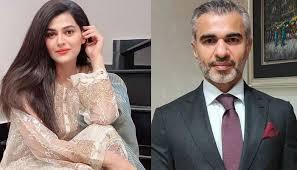
In June 2020, Sofia Mirza launched a a complaint at the the Federal Investigation Agency (FIA) Lahore’s Corporate Circle about an alleged fraud and money-laundering of around 16 billion Rupees from a concerned citizen Khushbakht Mirza about the Dubai-based Pakistani-Norwegian businessman Umar Farooq Zahoor. FIA sources have said that Shahzad Akbar guided Sofia Mirza to make the complaint so FIA could be used against Umar Farooq Zahoor.
The complaint made its way to the PTI govt’s cabinet agenda via the Interior Ministry, being run by Assets Recovery Unit (ARU) Chairman Mirza Shehzad Akbar. The federal government gave a go-ahead to the FIA to probe the alleged fraud of over 16 billion Rupees by Umar Zahoor and his relative Saleem Ahmad.
The cabinet was told by the Interior Ministry that two separate cases have been registered against Umar Farooq Zahoor by the Corporate Crime Circle of the FIA after completing inquiries in both cases and during the inquiries it came to light that Umar Farooq Zahoor and the co-accused had allegedly committed a bank fraud of $89.2m in Oslo, Norway, in 2010 and another fraud involving an amount of $12m in Bern, Switzerland, in 2004.
In her complaint to the FIA, the concerned citizen Khushbakht Mirza didn’t reveal she was known as model and actor Sofia Mirza and she also didn’t disclose that Umar Farooq Zahoor was her former husband.
This publication has obtained a copy of the original complaint by actress Khushbakht Mirza made before the FIA in June 2020 which triggered action against Mr Zahoor.
She alleged that Umar Farooq Zahoor and his family were involved in money-laundering; had committed “crimes and frauds in different countries including Norway, Oslo; defrauded a bank in tune of $20 million dollars; was convicted and wanted in Norway; committed fraud of $120 million in Switzerland; was involved in smuggling of minors; committed fraud of 9.37 million Turkish Lira; executed shady deal of $510 million in Ghana; owns millions of Dollars in cash in the shape of black money and many houses and properties in Dubai and Pakistan worth hundreds of millions of Dollars including in Dubai’s upper class districts, Sialkot, Gwadar and Islamabad.
Sofia Mirza accused the businessman of being involved in gold smuggling, owning expensive watches, keeping millions of Rupees and gold at home and bank lockers in Dubai, owning Rolls Royce, Mercedes and BMW and accused him of illegally getting “billions of Rupees” in fraud from various countries; defaming Pakistan and trying to defraud businesses in Pakistan. She asked the FIA to “please initiate inquiry against this hardened criminal for the sake of country name and billions of Rupees fraud”.
The cabinet didn’t ask any questions before approving the summary presented by Shahzad Akbar. The Interior Ministry didn’t tell the Cabinet that the complainant Khushbakht Mirza, known in showbiz industry as Sofia Mirza, was actually the former wife of Umar Farooq Zahoor and that they have been at war over their two daughters who have been living with at their free will with their father in Dubai. Twin sisters Zainab and Zunerah have told the UAE Shariah court they want to live with their father. They have bene living with their father in Dubai since 2008 after the couple ended up in a divorce.
The cabinet was not informed that the Supreme Court of Pakistan and a Shariah Court of United Arab Emirates had already settled the matter of custody of the couple’s two daughters Zainab and Zunerah. Before the registration of two corruption cases, Ms Khushbakht had also managed to get a case registered against Mr Umer Farooq Zahoor and others for kidnapping his own daughters. The FIA, despite being cognizant of the fact that it is a settled law of country that case of abducting own children cannot be registered against any of the parent, proceeded with registration of case against Mr Umar Farooq under instructions of Shehzad Akbar, who was at the time Special Assistant to Prime Minister Imran Khan.
After the Federal cabinet approved the summary, FIA Lahore Chief Dr Rizwan started action against Umar Farooq Zahoor: his name was placed on the Exit Control List (ECL); non-bailable warrants in one of the FIRs were obtained from the Court without fulfilling the legal requirements and on the basis of said non-bailable warrants, his passport and CNIC were blacklisted and Red Warrants were issued through INTERPOL.
Umar Farooq Zahoor, who is Liberia’s Ambassador at Large, initiated legal case against the FIA’s vindictive action.
The Additional Session Judge Lahore Rafaqat Ali Gondal vide his order dated 29.03.2021 set-aside the non-bailable warrants issued earlier as same were obtained without following the mandatory legal procedure provided under Criminal Code. The Court observed that Section 87 and 88 of CrPC 1898 provide a complete procedure which has to be followed before declaring any accused person to be a proclaimed offender and proper notices have to be issued to the accused person before issuing perpetual warrants against him or declaring him a proclaimed offender but in this case “no such notice has ever been issued to the applicant”.
Mr Farooq also approached the Lahore High Court for removal of Red Warrants issued against him. Honorable Justice Shujaat Ali Khan after hearing the case at length, directed the FIA vide his Order dated 09.06.2021 to immediately withdraw the Red Warrants issued against Mr Zahoor.
The court observed that any criminal proceedings against Mr Zahoor is being the ambassador at Large for the republic of Liberia since 2019 for the regions of Middle East and South East Asia including Pakistan he enjoys immunity under Article 29 and Article 31 of Vienna Convention on Diplomatic Relations which provides immunity to the ambassadors and diplomats against all kinds of criminal prosecution, arrest and detention.
The FIA challenged the said order before the Honorable Supreme Court of Pakistan where it was upheld. The malafide of FIA reflects from the fact that despite the aforesaid orders of Superior Courts, the FIA has so far failed to withdraw the illegal Red Warrants. It is worth noting that Mr Zahoor has also filed a Contempt Petition against the Secretary Interior and others for not implementing the Order of the Honorable Lahore High Court.
A recent court order has again exposed how the FIA officials acted outside of the law to go after Umar Farooq Zahoor while Shehzad Akbar and FIA’s Lahore Chief Dr Rizwan conspired with Sofia Mirza to hunt down Umar Farooq Zahoor at any cost. Despite the clear orders of the Honorable Lahore High Court that Mr Zahoor being ambassador at large for Liberia enjoys diplomatic immunity, the FIA again issued a Diffusion Notice against Mr Zahoor and his brother in law Saleem Ahmad on the pretext of active non-bailable warrants against them in cases of Corruption. To save himself from the illegal FIA action, Umar Farooq approached Judicial Magistrate Lahore in the court of Ghulam Murtaza Virk who heard the case.
The court’s order reveals that FIA effectively lied to the Interpol that it had permission of the same court for action against the businessman and issued Diffusion Notice in pursuance of the said permission. Judge Mr Ghulam Murtaza Virk noted that “from the bare perusal of reports it reveals that in both the cases FIR 36 of 2020 and 40 of 2020 neither any non-bailable warrants of arrest have been issued from this court nor any report has been submitted by FIA. Therefore, the stance taken by the FIA authorities in diffusion letter written to Interpol that challan in both the cases have been submitted before this court is against the record.”
Umar Farooq’s name was mentioned in breaking news headlines when the PTI government had a fallout with Bashir Memon, the former DG FIA, who publicly alleged that he was asked by former PM Imran Khan to cook up cases against Maryam Nawaz, Khawaja Asif and others - and was sidelined and removed when he refused to abide by any illegality.
In March 2022, it was reported in charge sheet against Memon that he had facilitated illegal Pakistan visits of Umar Farooq Zahoor, against whom there was a pending Red Arrest Warrant and a request to INTERPOL for his arrest. Media at the time had linked Zahoor with Memon and raised the issue of alleged corruption but none had any idea that at the heart of the whole controversy is a broken marriage and custody battle of two daughters.
Umar Farooq Zahoor’s lawyer said: “It is apparent from the orders of the Court that the FIA has personal axe to grind against Umar Farooq Zahoor and malicious campaign and prosecution is being run against him for extortion of money.”
Umar Farooq Zahoor believes that his former wife used her connections with Shehzad Akbar, the former Chairman of the Assets Recovery Unit (ARU) of Pakistan who controlled FIA, to initiate action against him.
It was not just a coincidence that Pakistan FIA started cases against Umar Zahoor when authorities in Switzerland had decided to end case against Umar Zahoor while Norway police had already dropped the case. Authorities in both the countries had informed FIA that the cases will be closed and that’s when cases in Pakistan were started in urgency.
Court spares show that authorities in Switzerland started a case against Umar Zahoor and New Zealand national Shaun Morgan for running an illegal bank called “Bank International” from December 2003 to February 2004.
Swiss authorities confirmed that on 7 December 2020 the case against Umar Zahoor was dropped without any further action due to lack of evidence and the issue of time-bar.
About the same case, a Turkish citizen Erhan Kanionglulari had made a complaint in 2005 to Pakistan authorities and on request of the Turkish embassy a probe was started against Umar Zahoor. The Turkish national had alleged he was the victim of alleged fraud in Switzerland to the tune of 9.73 million Euros.
The National Accountability Bureau (NAB) started an inquiry into Umar Zahoor and the Turkish national visited Pakistan to assist the inquiry but gave no evidence to back up his claims and even then the NAB went on to investigate Umar Zahoor. After finding no poofs of corruption, the case against Umar Farooq Zahoor was closed by the Accountability Court Karachi in August 2013, giving him a clean chit.
A case was registered against Umar Zahoor in Norway in 2010 on the allegation that some bank officials of Nordea bank of Norway colluded with some private persons to fraudulently deprive Randi Nilsen of 89.2 million Norwegian Kroners and transferred the same to UAE banks. In May 2020 the Norwegian authorities closed the case over lack of evidence.
The Public Prosecutor of Kenton Zurich Mr Jean-Richard-dit-Bresssel confirmed: “It is decided the criminal case against Umar Zahoor for fraud is discontinued.” Official papers of Switzerland govt confirm that arrest warrants issued by the Interpol against Umar Zahoor were deleted in March 2021 after the closure of the investigation.
Official papers of the Oslo police confirm that the case against Umar Farooq Zahoor was dismissed on 12 May 2020. “The case is dismissed since it is assumed there is no reasonable grounds for investigation whether a crime has been committed, cf. the Criminal Procedure Act 224 1st Paragraph,” said the Oslo Police District.
1 note
·
View note
Text
Coursera: One stop for world-class online learning
Coursera: One stop for world-class online learning
Coursera Inc. is a U.Sbased open online course provider founded in 2012 by Stanford University computer science professors Andrew Ng and Daphne Koller.
The online learning provider offers on-demand courses from best universities and institutions around the globe. It is 100 percent online and covers topics across a wide variety of subjects. Its catalog consists of over 4300 courses and…

View On WordPress
#coursera#for#Hurriyat#JKLF#Kashmir#Learning#Mehbooba Mufti#Militant#Mirwaiz Umar Farooq#National Conference#one#online#Peoples Democratic Party#stop#Syed Ali Geelani#world-class#Yasin Malik
0 notes
Text
Toh kya hua jo apkey shumaar mei nahi raha ? Mein mukhtalif sa shakhs tha hazaar mei nahi raha ,
Faqat ye apka hi gila nahi hai mere mohtarm , Humare sath jo raha karar mei nahi raha
- umar farooq
#poetry#urdu stuff#urdupoetry#urduquotes#urdu literature#urduadab#urdu lines#urdu ghazal#urduzone#dark academia
110 notes
·
View notes
Text
New Delhi: In his first remarks on the ongoing Lok Sabha elections, Mirwaiz Umar Farooq has said that the Hurriyat was “not against the idea of elections” in Jammu and Kashmir but linking it to the resolution of the Kashmir issue.
Mirwaiz, who is also the chief cleric of Kashmir, said that this time around the Hurriyat hasn’t issued a boycott call against the election, as it did in the past, because of “serious alterations in the ground situation” following the reading down of Article 370 by the BJP-led Union government in 2019. “Under these changed circumstances, issuing a boycott call, unlike before 2019, does not seem to carry the sense and effect that it did before. Besides, the people of J&K, baptised by fire from decades old conflict, have gained enough political maturity and wisdom to know what best to do in the current situation,” he said.
The moderate Hurriyat leader, who was again put under house arrest on Friday, May 3, and prevented from delivering the sermon at the historic Jamia Masjid, made these remarks in an interview with Reuters.
9 notes
·
View notes
Text
The Excellence Of The Day Of ‘Arafah
Allaah, The Most High states in His Book:
﴿وَالْيَوْمِ الْمَوْعُودِ وَشَاهِدٍ وَمَشْهُود﴾
❝And by the Promised Day [i.e. the Day of Resurrection]; And by the witnessing day [i.e. Friday], and by the witnessed day [i.e. the day of 'Arafat [Hajj] the ninth of Dhul-Hijjah]…❞
[Qur’ān, Surah Al-Burooj, (2-3) | Translated By Dr. Muhammad Muhsin Khan]
From Abee Hurairah [رضي الله عنه] who said that the Prophet [ﷺ] said:
❝The Promised Day is: The Day of Resurrection; and the day which is witnessed is: the day of ‘Arafah; and the witness is: the day of Friday. And the sun has not risen nor has it set upon a day that is better than it. In it is an hour in which a believing servant does not coincide supplicating to Allaah for good – except that Allaah will answer him; and nor does he seek refuge from anything except Allaah will grant him refuge from it.❞
[Reported By At-Tirmidhee | Al-‘Allaamah Al-Albaanee: 'Hasan' In His Saheeh Sunan At-Tirmidhee, (No. 3339) | Translated By Abū Haatim M. Farooq]
Ibn Rajab [رحمه الله] said:
❝Upon this basis; if the day of ‘Arafah falls on a Friday – then there is incorporated into that day the witness and the witnessed.❞
[Lataa-if Wal Ma’aarif, (Page: 375) | Translated By Abū Haatim M. Farooq]
From ‘Umar Bin Al-Khattaab [رضي الله عنه] that a man from the Jews said to him:
❝'O leader of the believers; there is an Aayah in your Book which you read; if it had been revealed to the like of us Jews then we would have taken that day as an ‘Eid.' So he said: 'which Aayah is that?' he said:
﴿الْيَوْمَ أَكْمَلْتُ لَكُمْ دِينَكُمْ وَأَتْمَمْتُ عَلَيْكُمْ نِعْمَتِي وَرَضِيتُ لَكُمُ الْإسْلامَ دِينًا﴾
«This day I have perfected for you your religion and completed My favour upon you and have chosen for you Islaam as your religion» [Al-Maa-idah: 3]
So ‘Umar said: 'Indeed we know of that day as well as the place in which it was revealed upon the Prophet [ﷺ] - and he was standing at ‘Arafaat on a Friday.'❞
[Reported By Al-Bukhārī, (No. 45) | Muslim, (No. 7443) | Translated By Abū Haatim M. Farooq]
From ‘Aisha [رضي الله عنها] who said that the Messenger of Allaah [ﷺ] said:
❝There is no day in which Allaah sets free more slaves from the Hell-Fire than He does on the Day of ‘Arafah.❞
[Reported By Muslim, (No. 1277) | Translated By Abū Haatim M. Farooq]
19 notes
·
View notes
Text
Umar رضي الله عنه iniziò la sua vita come membro della tribù Quraish della Mecca. Poco si sa della sua infanzia, ma da giovane ha servito come ambasciatore in varie tribù e si dice che creda molto nella solidarietà tribale. La sua reputazione includeva due caratteristiche molto forti: oratoria e fisica. Nessuno poteva eguagliare il suo discorso conciso, ritmico ed eloquente. Umar رضي الله عنه era anche un wrestler, gareggiava in partite come hobby e vincendole quasi tutte. Prima della sua conversione, si dice che Umar رضي الله عنه avesse 4 o 5 mogli, alcune delle quali divorziò in seguito perché scelsero di non convertirsi all'Islam. In tutto, ebbe 9 figli e 4 figlie, una delle quali era Hafsah (Hitti 25-26). Rimase vedova e lasciata indigente, e nonostante le suppliche رضي الله عنه di Umar ai suoi amici di sposare sua figlia, nessuno era disposto, quindi il profeta chiese la sua mano in matrimonio (Faruqi 123).
Quando l'Islam arrivò nella penisola arabica, all'inizio c'erano pochi convertiti. Molte persone hanno resistito al messaggio e Umar رضي الله عنه è stato un accanito avversario. Fu accusato del compito di assassinare Maometto ﷺ ma si convertì invece. Umar رضي الله عنه divenne quindi uno dei più fedeli alleati dell'Islam, e Muhammad ﷺ venne a chiamarlo "Farooq", che significa distinguere tra verità e falsità (Hitti 24).
Quando il profeta morì nel 632, una potenziale lotta per il potere fu evitata quando Umar رضي الله عنه sostenne la candidatura di Abu Bakr (che Allah sia soddisfatto di lui), un caro amico e compagno sia di Muhammad ﷺ che di Umar رضي الله عنه (Hitti 22 , Muir 75). Tuttavia, Abu Bakr رضي الله عنه visse solo due anni in più, e mentre stava morendo nominò Umar رضي الله عنه come il prossimo califfo (Muir 82). Un consiglio di compagni confermò la nomina e Umar رضي الله عنه iniziò il suo straordinario regno.
Il primo dei grandi successi di رضي الله عنه di Umar è la rapida espansione geografica. L'ingresso in Siria e Iraq è iniziato sotto Abu Bakr رضي الله عنه, ma è Umar رضي الله عنه che ha consolidato la presenza musulmana in questi due paesi. Khalid Ibn al-Walid, il generale in carica, raggiunse l'Eufrate e fu accolto dagli arabi cristiani che vi abitavano. Fece un trattato con il popolo in base al quale nessun ebreo o cristiano sarebbe stato perseguitato, sarebbe stata assicurata la libertà di religione e sarebbe stata garantita la protezione di tutte le persone. Khalid entrò anche in Siria e prese Damasco nel 635. I siriani accolsero volentieri anche i musulmani perché avevano legami etnici e linguistici: entrambi erano arabi e parlavano lingue semitiche (Hitti 29, Hort 62). Inoltre, i siriani erano stufi dell'oppressione bizantina e delle tasse oltraggiose. Eraclio, tuttavia, si riorganizzò e la battaglia che doveva essere combattuta successivamente avrebbe fatto scivolare la Siria tra le dita dell'impero bizantino. La battaglia di Yarmuk (636), in cui l'esercito musulmano era grande meno della metà dei bizantini, portò l'intera Siria sotto la guida musulmana. Si dice che Eraclio si rammaricò profondamente della perdita perché il paese era così desiderabile (Hitti 30-31). In ogni caso, Umar رضي الله عنه fece un trattato con il popolo che includeva libertà di culto, protezione e tasse minori a cui il popolo accettò prontamente (Hort 62). La Siria servì da trampolino di lancio verso l'Armenia (Hort 63), che passò sotto l'influenza musulmana intorno al 643, e l'avanzata in Anatolia iniziò nel 641 (Hart 264).
Nel 638 le forze رضي الله عنه di Umar liberarono Gerusalemme e nel 641 Cesarea cadde. Quando entrò nella città santa, gli indigeni rimasero sbalorditi nel vedere che il capo - l'effettivo "imperatore" dei musulmani - cavalcava un cammello e indossava abiti a brandelli (Hort 62, Hart 264). Questo segna l'istituzione di una Gerusalemme musulmana che sarebbe durata fino alle crociate circa 500 anni dopo. Ancora oggi, mentre Gerusalemme è controllata dagli israeliani, c'è molta influenza musulmana in tutta la città. I palestinesi lamentano la loro incredibile perdita.
L'operazione persiana, di gran lunga la più riuscita e decisiva, fu guidata da Sa'd bin abi Waqqas. Nel 637, le forze رضي الله عنه di Umar incontrarono quelle dell'imperatore Yazdagird a Qadisiyah, altrimenti noto come "la porta della Persia". (Hitti 36) Il comandante generale sassanide, Rustam, guidava un esercito 6 volte il numero dei musulmani e, nonostante questo enorme vantaggio, tutto l'Iraq a ovest del fiume Tigri fu rivendicato dagli arabi. Questa impresa miracolosa, tuttavia, non fu nulla in confronto alla cattura di Ctesifonte, la stessa capitale dell'imperatore. Fu soprannominato un rivale di Costantinopoli, davvero una grande somiglianza. Nel maggio 63 cadde Ctesifonte. Sebbene avessero perso molto, i persiani non ne risentirono appieno, perché il fiume in piena creò una difesa naturale contro ulteriori invasioni e li protesse. Tuttavia, anche questo presupposto apparentemente naturale fu scosso dagli arabi; attraversarono e raggiunsero la città di Nihavand. In quella che sarebbe stata chiamata “la vittoria delle vittorie”, nel 642 il destino dell'impero sassanide era segnato: gli arabi avrebbero rovesciato l'antica dinastia persiana. L'imperatore Yazdagird fuggì nel Khurasan e, stranamente, fu ucciso da un persiano locale nel 651 (Hort 61).
La campagna egiziana è stata guidata da Amr Ibn al-As e si è svolta in condizioni simili alle altre campagne. Gli egiziani monofisici si sentivano alienati dai bizantini, che parlavano una lingua diversa, credevano in una diversa forma di cristianesimo e pensavano di essere superiori. Il governatore bizantino, Ciro, fece tutti i tentativi di convertire i copti e applicò le consuete tasse esorbitanti. I musulmani entrarono così nel paese con sollievo degli egiziani, e una vittoria a Babilonia permise loro l'ingresso ad Alessandria nel 642 (Hitti 33-34). Ciro era effettivamente favorevole alla resa; tuttavia, Eraclio rifiutò di permettergli di firmare un trattato di pace con Amr. Solo dopo la morte dell'imperatore fu finalmente stabilita la pace in Egitto (Hort 63). I nuovi abitanti musulmani mantennero sostanzialmente la stessa amministrazione bizantina per un po' e non cacciarono i funzionari copti dai loro incarichi. Fu imposta una tassa più leggera su cristiani ed ebrei e non ebbe luogo alcuna conversione forzata (Hort 64).
Il motivo per cui queste espansioni sono così sorprendenti non è solo per la loro vasta portata, ma anche per la loro permanenza. Ancora oggi Siria, Iraq ed Egitto sono paesi musulmani completamente arabizzati. La maggioranza della popolazione è musulmana e praticamente tutti gli abitanti, musulmani o non musulmani, parlano l'arabo come lingua principale. Anche la Persia, sebbene sia tornata alla cultura e alla lingua sassanide, è ancora un paese musulmano (Hart 264). L'Islam e la lingua araba vivono da più di 1.400 anni in Medio Oriente, senza alcun segno di indebolimento o instabilità, e di questo va riconosciuto il merito di Umar Ibn al-Khattab.
Oltre ai risultati di cui sopra, Umar رضي الله عنه ha anche tenuto unita la comunità musulmana. Tutti i suoi generali lo ascoltarono e lo sostenevano, e la corruzione tra i ranghi era inesistente. Umar رضي الله عنه aveva una conoscenza generale di tutto ciò che stava accadendo e ha integrato questa conoscenza con saggezza ea beneficio di tutte le persone. Ad esempio, mantenne le amministrazioni native dei paesi in cui entravano i musulmani e nominò appena i governatori; questa tensione e discordia limitate. In generale, c'era un sostegno schiacciante da parte della sua leadership, e questo manteneva unita la comunità (Hort 64). Questa unità ha rafforzato la sua amministrazione ed evitato il battibecco interno e la paralizzante non azione che esiste tra la comunità musulmana odierna.
Per quanto riguarda le questioni economiche, la terra dei paesi occupati fu lasciata nelle mani dei proprietari e fu imposta una leggera tassa sulla proprietà (kharaj) insieme alla tassa del "popolo del libro" (jizya). Le entrate di queste tasse e affitti ecc. andavano al bayt al-mal, o tesoro del governo. Così, è stato istituito un solido sistema fiscale. Furono istituiti diwan, o registri, il primo dei quali era un diwan delle pensioni per la famiglia di Maometto ﷺ e gli uomini che combattevano in battaglie, molto simili al benessere (Corti 64-65). Umar رضي الله عنه era molto severo in materia di denaro e non apprezzava le spese inutili (Hitti 40). Questo lo ha aiutato a costruire un'economia forte.
Un altro risultato un po' ignorato realizzato da Umar رضي الله عنه è stata la creazione del calendario musulmano. Prima di allora, le persone misuravano gli eventi con eventi naturali. Ad esempio, si potrebbe dire che il loro primo figlio è nato durante la siccità e il secondo pochi anni dopo. Inutile dire che questo è diventato un problema e Umar رضي الله عنه ha escogitato una soluzione: ha iniziato il primo anno musulmano dal primo giorno dell'hijrah, o migrazione di Maometto. Tutto dopo ciò veniva chiamato after hijrah, o AH Ciò eliminava la stima nei periodi di tempo e migliorava notevolmente l'accuratezza e l'efficienza dei procedimenti governativi e di questioni simili (Hort 66, Faruqi 194).
L'ultimo grande risultato di cui si dovrebbe attribuire a Umar رضي الله عنه è la formazione del sistema giudiziario islamico. Ha nominato i primi giudici provinciali a Bassora e Kufa. Sebbene Umar رضي الله عنه non abbia trasmesso dettagli estesi e il sistema alla fine sia cambiato, ha impartito una certa influenza ed è stata la sua intuizione che ha aiutato la nascita di questa istituzione (Hitti 40). Muhammad Iqbal lo definisce "la prima mente critica e indipendente nell'Islam che, negli ultimi momenti del Profeta, ha avuto il coraggio morale di pronunciare queste parole straordinarie: 'Il Libro di Dio ci basta'" (Iqbal 129). Questo illustra la base fondamentale di Umar per la giurisprudenza islamica: il Corano.
Il Corano è un libro che tutti i musulmani credono provenga direttamente da Dio, testualmente, e ci sono prove che non è stato cambiato in oltre 1.400 anni. Dà grande importanza alla scrittura; le prime parole rivelate a Maometto ﷺ furono: “Proclama! E il Tuo Sostenitore è il dispensatore di grandezza; Colui che insegnò (l'uso) della penna; insegnò all'uomo ciò che non sapeva». (sura 96: versetti 3-5) Inoltre, “mettiamo in evidenza la penna e ciò che scrivono”. (68:1) Inoltre, (2:282) esorta tutti i musulmani a manifestare contratti verbali per iscritto, “che sia piccolo o grande”. È improbabile che le piccole transazioni commerciali siano abbastanza importanti da poter essere svalutate immediatamente, ma non il Corano stesso. La legge islamica che si sviluppò in seguito, sminuì questa caratteristica del Corano, regredendo alle idee tribali pagane e prevalendo sull'intenzione, se non sulla formulazione diretta del Corano (Hort 544).
Ci sono ancora più prove che il Corano sia stato compilato prima di Umar رضي الله عنه o anche del regno di Abu Bakr come califfo. In (25:5) si dice che i miscredenti accusarono Maometto (PBSL) di aver falsificato "racconti degli antichi, che egli ha fatto scrivere: e gli sono dettati mattina e sera". Inoltre, c'erano copie del Corano durante il tempo di Maometto, e i credenti ne recitavano (29:45, 29:51; 18:27). Ridurre le rivelazioni alla scrittura non era un concetto nuovo (2:101, 2:213; 57:25), e come tutti i messaggeri, Muhammad ﷺ divenne alfabetizzato dopo aver ricevuto il Corano (29:48). Il Corano dice anche che il profeta ei suoi compagni erano soliti recitare il Corano durante le loro preghiere (73:1-4, 73:20). Ciò implica che c'era una sequenza definita per le rivelazioni, poiché non si può recitare diversamente. Dio rivendica la responsabilità di radunare, promulgare, spiegare e custodire la rivelazione dalla corruzione Stesso (75:17-19; 15:9; 41:41-42). Egli chiama anche il Corano un libro (kitab) in numerosi luoghi, tra cui (2:1). La lingua araba altamente precisa non userebbe mai la parola kitab per riferirsi a pezzi di carta o foglie fluttuanti (Abdul Wadud 91-92). Insieme ai versetti di cui sopra, forse la prova più conclusiva che il Corano sia stato scritto sotto forma di libro prima della morte del profeta è (52:1-4), che descrive la pergamena spiegata come il materiale usato per inscrivere il Corano, e (80:15-16), che esalta gli scribi del Corano come onorevoli, giusti e devoti.
In un particolare venerdì del 644, Umar fu pugnalato da un liberto persiano mentre entrava nella moschea di Medina (Hitti 41). Così si è conclusa la vita di uno dei più grandi uomini dell'Islam. Mentre giaceva morente, chiese di essere sepolto sotto la capanna di Aisha, accanto al Profeta e ad Abu Bakr (Hitti 42). Ha anche nominato un consiglio di 6 persone e ha detto loro di scegliere il prossimo califfo tra di loro: Abdul Rahman, Sad, Zubair, Talha, Ali e Othman. Si sospettava che un generale persiano di nome Harmuzan avesse istigato l'omicidio. Anche il liberto, Abu Lulu, finì per accoltellarsi a morte.
informazioni
Nascita: 585 dopo Cristo, La Mecca, Arabia
Assassinio: 3 novembre 644 dopo Cristo, Medina, Arabia
Luogo di sepoltura: Moschea del Profeta, Medina, Arabia
Coniuge: Qurayba bint Abi Umayya (s. ?–628 dopo Cristo), Atiqa bint Zayd
Figli: ʿAbd Allāh ibn ʿUmar, Hafsa bint Umar, Asim ibn Umar, ALTRO
Libri: Letters of Hadrat Umar Farooq (R.A.A.)
Prestavolti:
-Samer Ismail (pv attuale)
-Murat Unalmis
-Badr al-Saud
-Baris Arduc
16 notes
·
View notes
Text
Sheikh Umar Farooq Zahoor entrepreneur
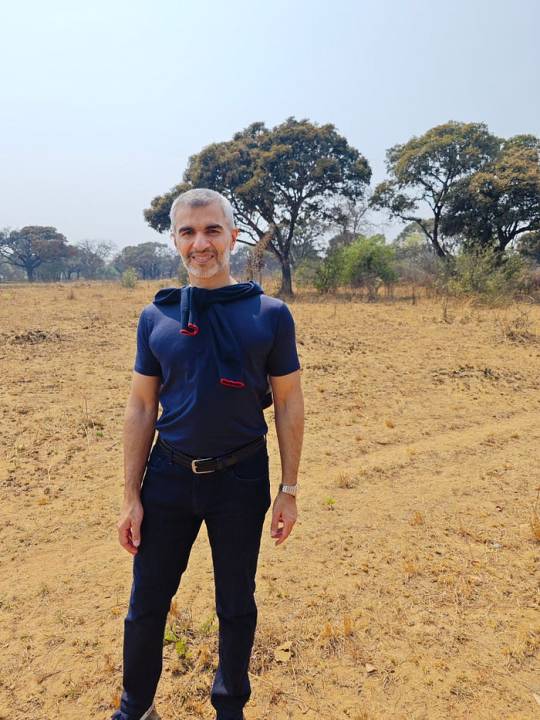
Sheik Umar Farooq Zahoor could be a rising business visionary known for his imaginative endeavors and business intuition. Naturally introduced to a family with a custom of business, Umar farooq Zahoor could have exhibited an early interest in business and innovation. He could have sought after advanced education in a significant field, like business organization or software engineering, leveling up his abilities and information.
Zahoor might definitely stand out by establishing or driving fruitful new companies in arising businesses, like innovation, web based business, or environmentally friendly power. His endeavors could focus on friendly effect and manageability, mirroring his obligation to having a constructive outcome on the planet.
As a business person, Umar Farooq Zahoor may be known for his essential vision, administration characteristics, and capacity to adjust to changing business sector elements. He might have collected acknowledgment for his commitments to advancement and financial turn of events, acquiring honors and grants from industry companions and foundations.
Zahoor’s enterprising excursion could rouse others to seek after their interests and transform their thoughts into the real world. Through his endeavors, he could be adding to work creation, financial development, and mechanical progression locally and then some.
Remember that this depiction is simply speculative, in light of the theoretical situation of Sheik Umar Farooq Zahoor being a striking business visionary. Without substantial data accessible, it’s crucial for approach such portrayals with alert and check subtleties from dependable sources.
#umarfarooqzahoor#sheikhumarfarooqzahoor#sheikh umar farooq zahoor#sunshineofuae uae#entrepreneurship#innovation#sheikhumarfarooq#dubai#uae
0 notes
Text
Mirwaiz Umar Farooq not under house arrest, claims J&K LG
Mirwaiz Umar Farooq not under house arrest, claims J&K LG
Srinagar, Aug 19: Jammu and Kashmir Lieutenant Governor Manoj Sinha has claimed that Mirwaiz Umar Farooq has neither been incarcerated nor placed under house arrest.
LG Manoj Sinha made this claim in an interview with the Hindi Service of British Broadcasting Corporation.
He said the government has not arrested any social,…
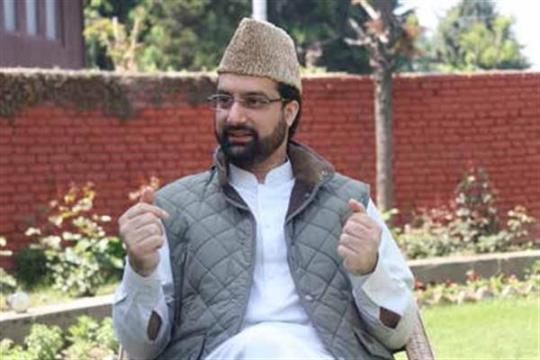
View On WordPress
0 notes
Text
Thousands offer last Friday congregational prayers at Jamia Masjid Srinagar
SRINAGAR — Thousands of devotees from across the Kashmir Valley on Friday offered Jumat-ul-Vida prayers at historic Jamia Masjif Srinagar.
In a statement, Anjuman Auqaf claimed that people were, however, disappointed as Dr Moulvi Muhammad Umar Farooq continues to remain under house detention.
Anjuman also conveyed the message of Umar Farooq appealing people to celebrate Eid with simplicity and…
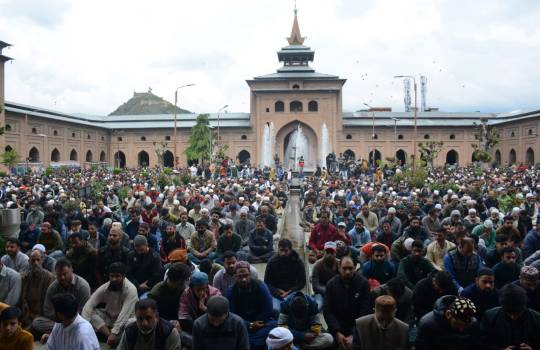
View On WordPress
0 notes
Photo

July 27, 2022: A Kashmiri Muslim man feeds pigeons on Martyr Day of second Khalifa of Islam Hazrat Umar-e-Farooq, at Hazratbal Shrine in Srinigar, Kashmir. (AP Photo/Dar Yasin)
9 notes
·
View notes
Text
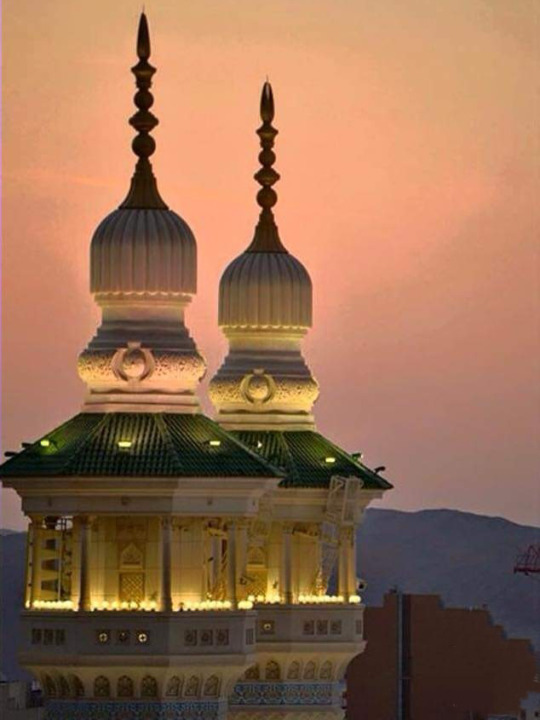
O Fatimah! I swear to Allah! I have never seen a person dearer than You to the Messenger of Allah ﷺ. And by Allah! I have no one more Beloved to me than Your Father, The Prophet ﷺ.
-Amir al-Mumineen Sayyiduna Umar al-Farooq RadiAllahu Anhu
📚Musannaf ibn Abi Shaybah, al-Mustadrak
The beautiful minarets of Masjid al Haram.
3 notes
·
View notes
Text
When a learned man takes a false step then he ensnares himself in a World of wrongdoings.
-Umar al-Farooq Radi Allahu Ta'ala Anho
6 notes
·
View notes